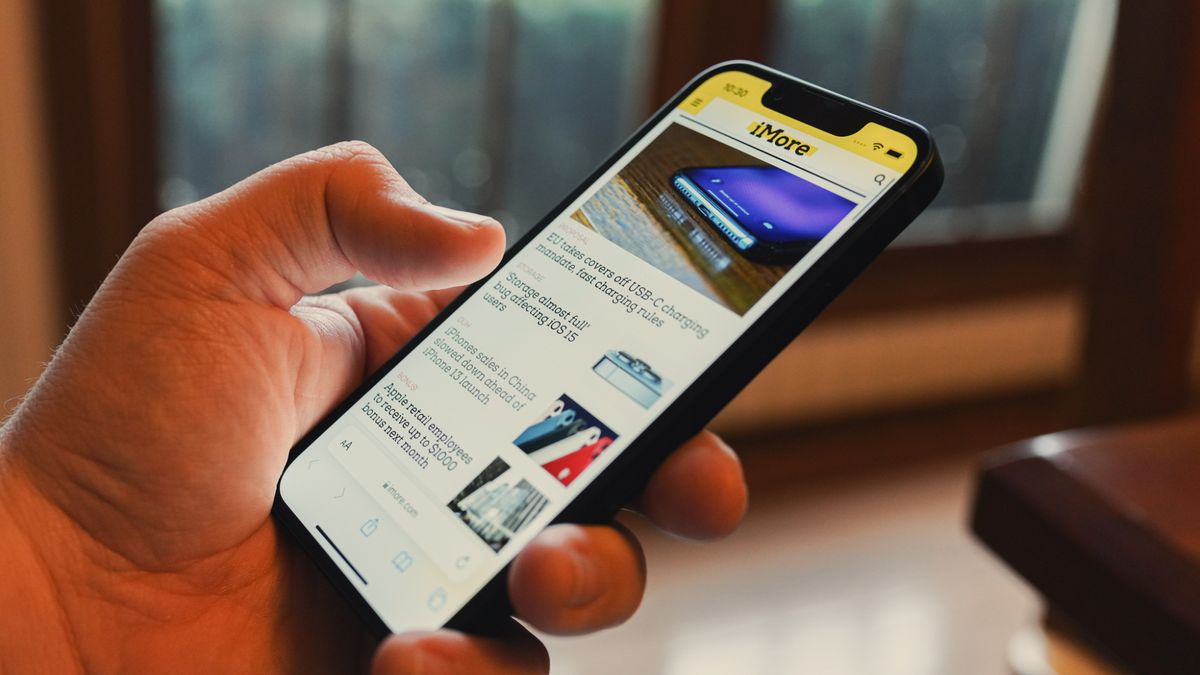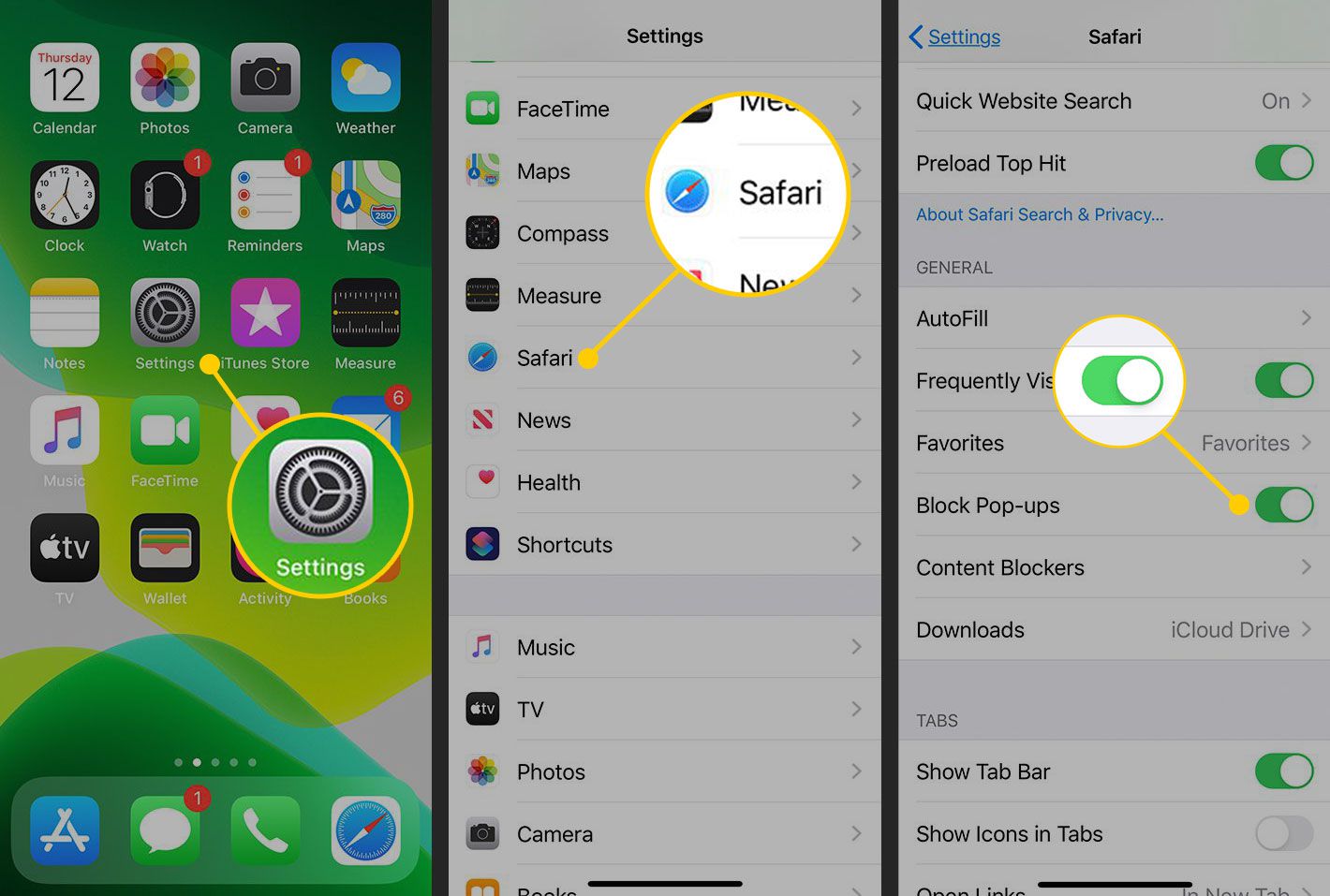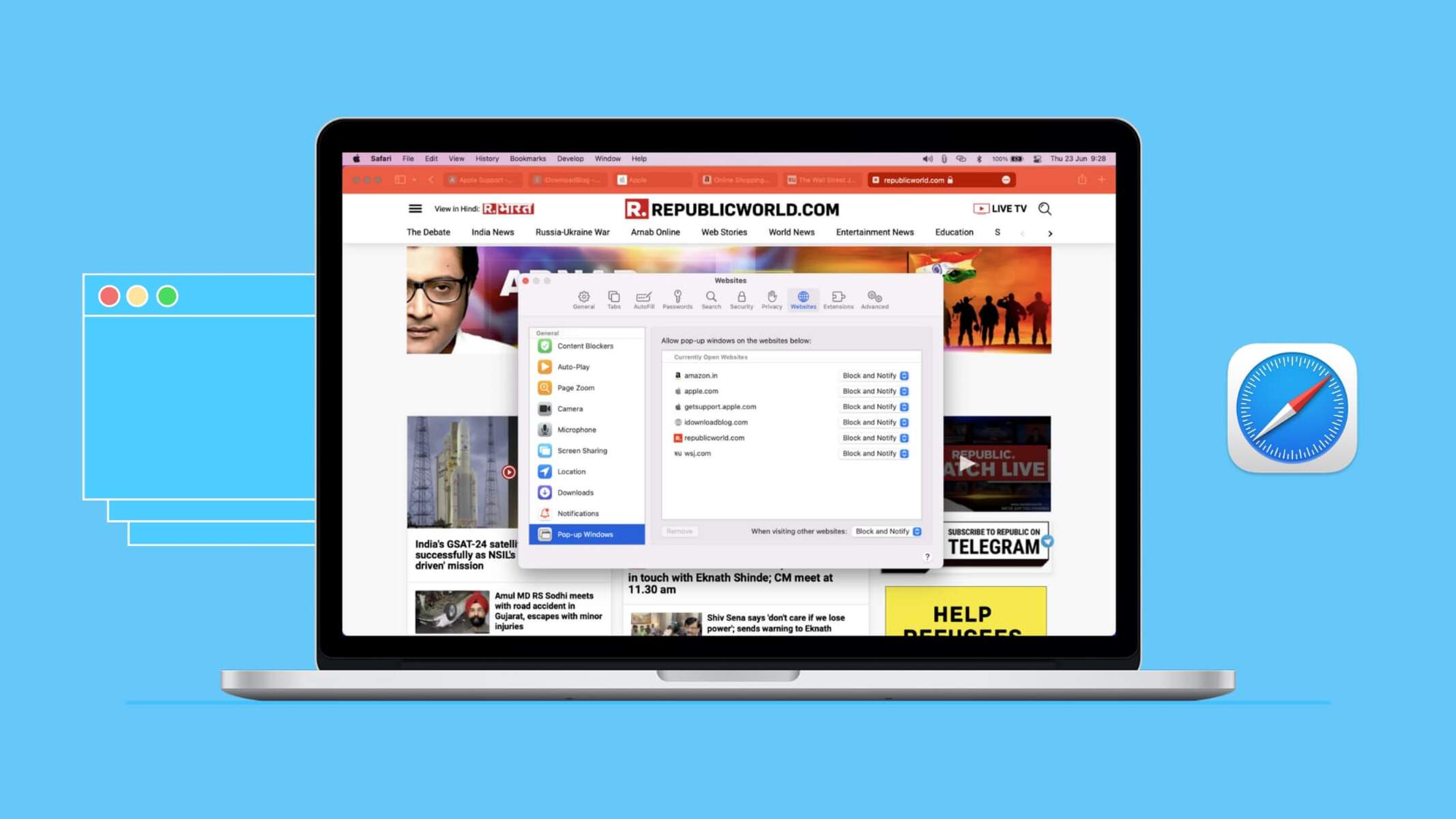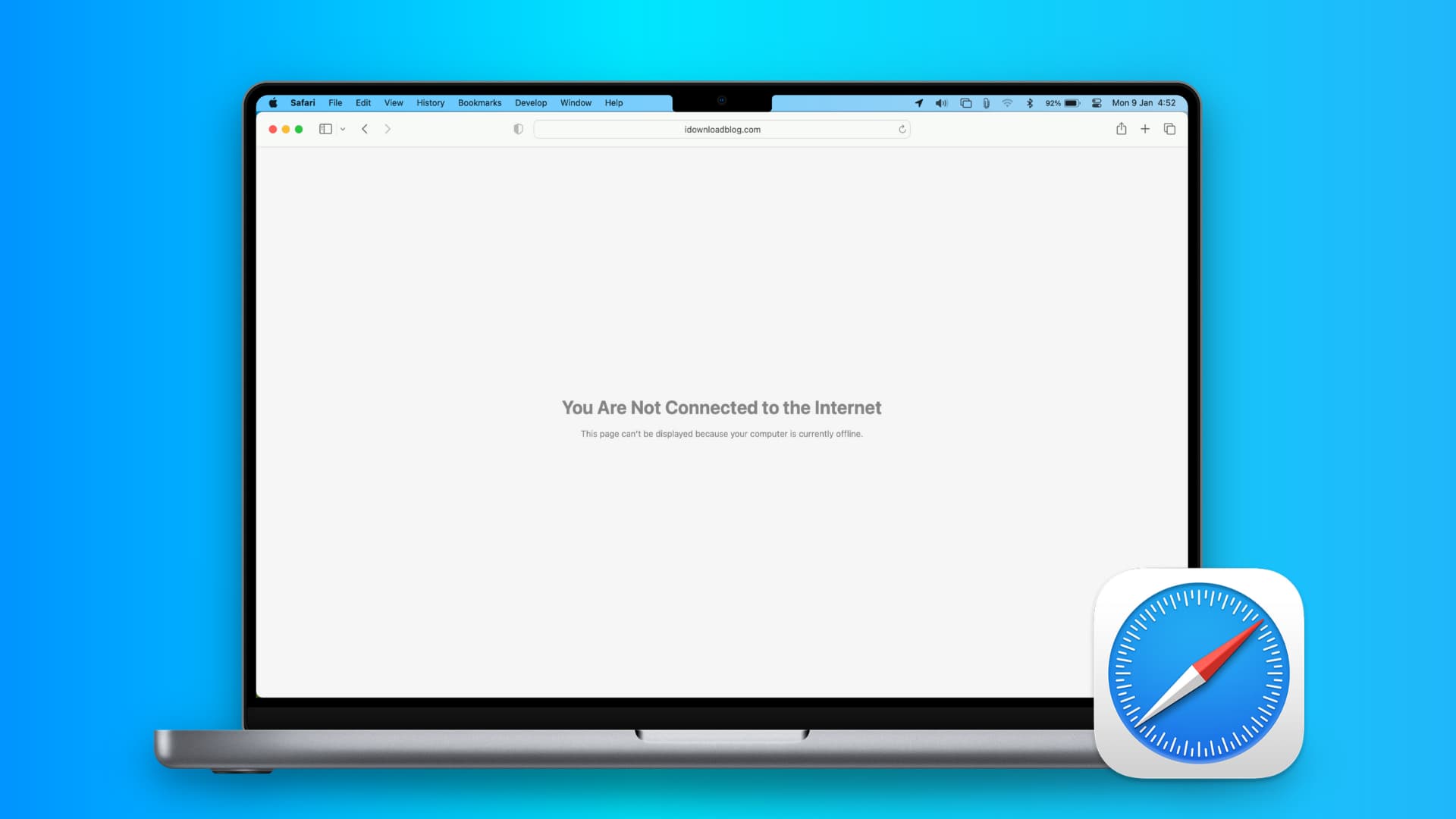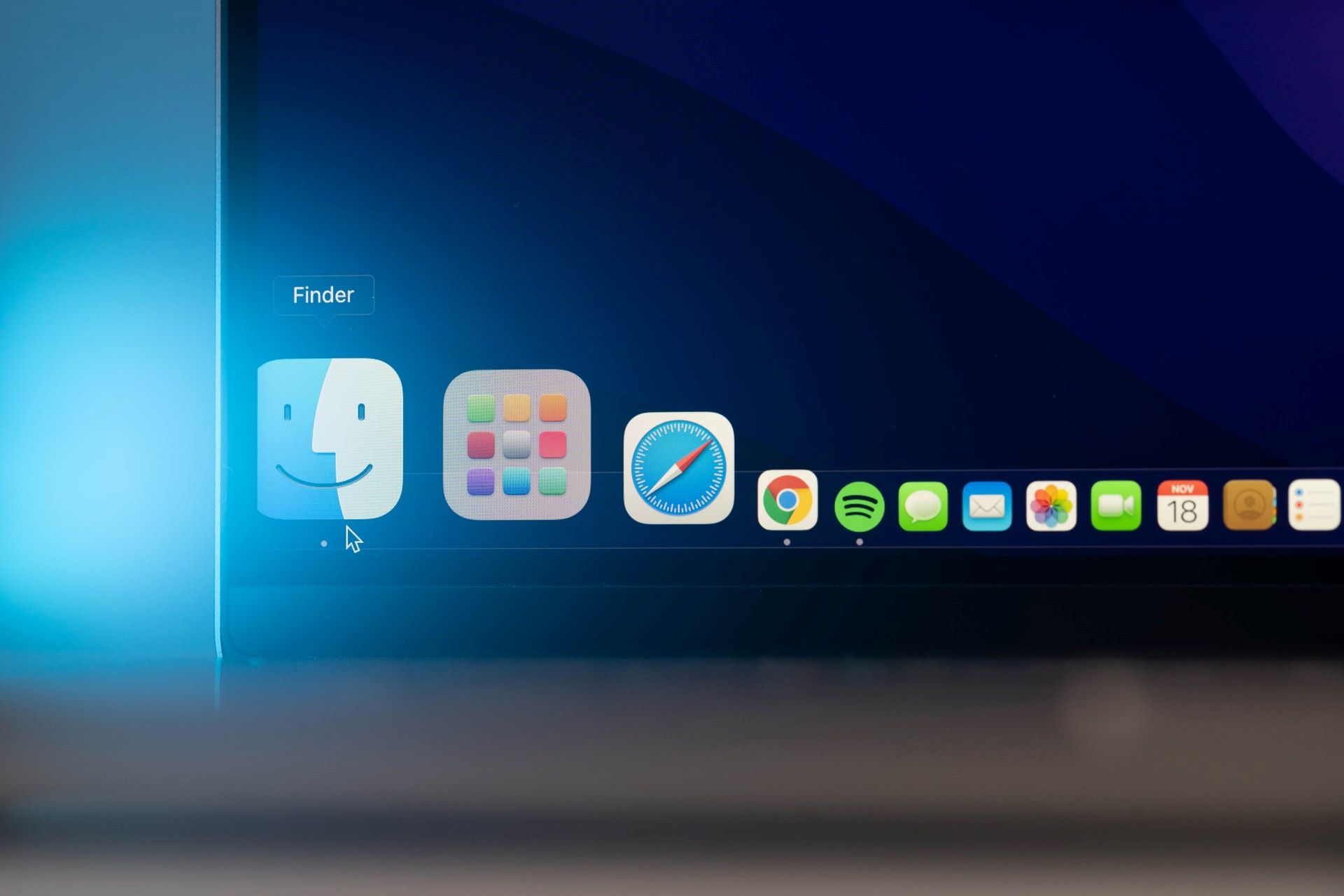Introduction
When it comes to browsing the internet on an iPhone, Safari has long been the default browser of choice. With its sleek interface and seamless integration with the iOS ecosystem, Safari has garnered a loyal following among iPhone users. However, there are instances where users may seek to block Safari on their iPhones for various reasons. Whether it's to limit access for children, enhance productivity, or address privacy concerns, the ability to block Safari can be a valuable feature for iPhone users.
In this article, we will explore the reasons why individuals may choose to block Safari on their iPhones and provide a comprehensive guide on how to do so. Additionally, we will delve into alternative browser options for iPhone users, offering insights into other browsers that can effectively replace Safari. Whether you're a concerned parent, a productivity enthusiast, or simply looking to explore different browsing experiences, this article aims to equip you with the knowledge and tools to make informed decisions about your browsing preferences on your iPhone.
Let's embark on this journey to understand the intricacies of blocking Safari on your iPhone and discover the diverse array of browser options available to cater to your specific needs.
Why Block Safari on iPhone?
There are several compelling reasons why individuals may opt to block Safari on their iPhones. Understanding these motivations can shed light on the diverse needs and preferences of iPhone users. Here are some common scenarios where blocking Safari becomes a practical choice:
-
Parental Control: For parents seeking to regulate their children's online activities, blocking Safari can be a crucial step in ensuring a safe and age-appropriate browsing environment. By restricting access to Safari, parents can direct their children towards curated content and child-friendly applications, fostering a secure digital experience.
-
Productivity Enhancement: In a professional or academic setting, minimizing distractions and maintaining focus is paramount. Blocking Safari can serve as a strategic measure to deter impulsive browsing and optimize productivity. By eliminating the temptation to aimlessly surf the web, individuals can channel their energy towards meaningful tasks and goals.
-
Privacy and Security Concerns: In an era marked by heightened awareness of online privacy and security, some users may choose to block Safari to mitigate potential risks. By utilizing alternative browsers with robust privacy features, individuals can exercise greater control over their digital footprint and protect sensitive information from unauthorized access or tracking.
-
Preference for Alternative Browsers: While Safari boasts seamless integration with the iOS ecosystem, some users may simply prefer the features and interface of other browsers. By blocking Safari, individuals can explore a diverse range of browser options that align more closely with their browsing habits and preferences, thereby enhancing their overall digital experience.
-
Customized Browsing Experience: Blocking Safari allows users to tailor their browsing experience to align with their specific needs and preferences. Whether it involves leveraging specialized features offered by alternative browsers or adhering to a distinct visual aesthetic, the ability to block Safari empowers users to craft a personalized and tailored browsing environment.
By recognizing these varied motivations, it becomes evident that the decision to block Safari on an iPhone is rooted in a multitude of factors, ranging from parental responsibilities to individual preferences and digital well-being. This diversity underscores the significance of understanding the underlying reasons behind this choice and underscores the importance of offering viable alternatives to cater to the unique needs of iPhone users.
How to Block Safari on iPhone
Blocking Safari on your iPhone is a straightforward process that empowers you to customize your browsing experience according to your specific needs. Whether you're a concerned parent, a productivity enthusiast, or someone seeking enhanced privacy and security, the ability to block Safari provides a tailored approach to managing your digital interactions. Here's a comprehensive guide on how to block Safari on your iPhone:
Using Screen Time Settings:
- Access Screen Time: Open the "Settings" app on your iPhone and tap on "Screen Time."
- Enable Content & Privacy Restrictions: Within Screen Time settings, tap on "Content & Privacy Restrictions" and toggle the switch to enable this feature.
- Enter Restrictions Passcode: If prompted, enter your Screen Time passcode or set up a new one to proceed.
- Restrict Safari: Under Content & Privacy Restrictions, tap on "Allowed Apps" and disable Safari by toggling off its option.
Guided Access Method:
- Navigate to Accessibility Settings: In the "Settings" app, go to "Accessibility" and select "Guided Access."
- Enable Guided Access: Turn on Guided Access and set a passcode that will be used to exit Guided Access mode.
- Start Guided Access Session: Open Safari, triple-press the Side or Home button (depending on your iPhone model), and tap "Start" to initiate Guided Access for Safari.
Utilizing Parental Controls:
- Family Sharing: If you're managing a family group, utilize Family Sharing to set up parental controls for your child's iPhone. Within Family Sharing settings, you can restrict Safari access for specific family members.
- Restricting Content: Under the child's device settings, navigate to "Content & Privacy Restrictions" and disable Safari to prevent access.
Installing Third-Party Apps:
Explore third-party apps designed to offer comprehensive parental control features, including the ability to block specific apps such as Safari. These apps often provide customizable settings to tailor the browsing experience according to your preferences.
By leveraging these methods, you can effectively block Safari on your iPhone, aligning your browsing habits with your unique requirements. Whether it's fostering a safe digital environment for your children, enhancing productivity, or fortifying your privacy, the flexibility to block Safari empowers you to curate a browsing experience that resonates with your individual preferences and priorities.
Alternative Browsers for iPhone
In the realm of iPhone browsing, a diverse array of alternative browsers stands ready to offer compelling features and unique browsing experiences. While Safari remains the default choice for many users, exploring alternative browsers can unveil a wealth of innovative functionalities and customization options. Whether you seek enhanced privacy, advanced productivity tools, or a visually captivating interface, these alternative browsers cater to a spectrum of preferences and requirements. Let's delve into the realm of alternative browsers for iPhone, unveiling the distinctive offerings that set them apart.
Google Chrome
As a stalwart in the browsing landscape, Google Chrome boasts seamless synchronization with its desktop counterpart, offering a unified browsing experience across devices. With robust tab management, intuitive voice search, and integrated Google account features, Chrome presents a compelling alternative for users deeply entrenched in the Google ecosystem. Furthermore, its extensive library of extensions enhances functionality, enabling users to tailor their browsing experience with specialized tools and enhancements.
Mozilla Firefox
Renowned for its commitment to privacy and customization, Mozilla Firefox stands as a stalwart advocate for user empowerment. With robust privacy features, including enhanced tracking protection and comprehensive privacy settings, Firefox prioritizes user security and data protection. Moreover, its extensive library of add-ons and themes allows users to personalize their browsing environment, fostering a tailored and visually captivating experience.
Microsoft Edge
Microsoft Edge has undergone a remarkable transformation, emerging as a formidable contender in the iPhone browsing arena. With seamless integration with Windows 10 and a focus on productivity, Edge offers features such as built-in note-taking and seamless synchronization with Microsoft services. Its immersive reading view and comprehensive tracking prevention further augment the browsing experience, catering to users seeking a seamless blend of productivity and functionality.
Opera Touch
Emphasizing one-handed usability and intuitive navigation, Opera Touch reimagines the browsing experience with its innovative design and feature set. Its Fast Action Button facilitates effortless navigation, while the Flow feature enables seamless synchronization of content across devices. Additionally, Opera Touch's built-in ad blocker and cookie dialog blocker enhance privacy and streamline the browsing experience, making it an appealing choice for users prioritizing convenience and efficiency.
Brave Browser
Distinguished by its commitment to privacy and ad-blocking capabilities, Brave Browser offers a refreshing take on the browsing landscape. With built-in ad and tracker blocking, Brave prioritizes user privacy and data security, fostering a streamlined and secure browsing experience. Furthermore, its innovative Basic Attention Token (BAT) ecosystem incentivizes user engagement with content creators, offering a novel approach to content monetization and user empowerment.
Vivaldi
Catering to users with a penchant for customization and advanced browsing features, Vivaldi presents a wealth of options to tailor the browsing experience to individual preferences. With robust tab management, extensive customization options, and a built-in note-taking feature, Vivaldi empowers users to craft a browsing environment that aligns with their unique needs and habits. Its emphasis on user control and flexibility makes it an intriguing choice for those seeking a deeply personalized browsing experience.
In the vibrant landscape of alternative browsers for iPhone, these offerings stand as compelling alternatives to Safari, each presenting a distinct set of features and philosophies. Whether it's privacy-centric browsing, seamless synchronization across devices, or advanced customization options, these alternative browsers cater to a spectrum of user preferences, enriching the iPhone browsing experience with diverse and innovative offerings.
Conclusion
In the ever-evolving realm of digital interactions, the ability to customize and tailor our browsing experiences to align with our unique needs and preferences holds immense significance. As we navigate the multifaceted landscape of iPhone browsing, the decision to block Safari emerges as a pivotal choice, driven by diverse motivations ranging from parental concerns to privacy considerations and individual browsing habits.
By delving into the intricacies of blocking Safari on iPhones, we have unveiled a wealth of insights and practical methods to empower users in curating their digital interactions. Whether it involves leveraging Screen Time settings, utilizing Guided Access, or exploring third-party parental control apps, the process of blocking Safari offers a nuanced approach to managing our browsing habits in accordance with our specific requirements.
Furthermore, the exploration of alternative browsers for iPhone has illuminated a vibrant tapestry of options, each offering distinctive features and philosophies to cater to a spectrum of user preferences. From Google Chrome's seamless integration with the Google ecosystem to Mozilla Firefox's unwavering commitment to privacy and user empowerment, these alternative browsers present compelling avenues for users to explore diverse browsing experiences that resonate with their individual needs.
As we conclude this journey through the intricacies of blocking Safari on iPhone and exploring alternative browser options, it becomes evident that the landscape of digital interactions is rich with possibilities and tailored experiences. Whether it's fostering a safe and enriching browsing environment for children, enhancing productivity, fortifying privacy, or simply embracing a browsing experience that aligns with our unique preferences, the ability to block Safari and embrace alternative browsers empowers us to craft a digital journey that resonates with our individuality.
Ultimately, the significance of understanding the diverse motivations behind blocking Safari and embracing alternative browsers lies in the empowerment of users to shape their digital experiences in a manner that reflects their values, priorities, and aspirations. By offering a nuanced and diverse array of browsing options, the iPhone ecosystem stands poised to cater to the multifaceted needs of users, fostering a dynamic and enriching digital landscape that celebrates individuality and user empowerment.







